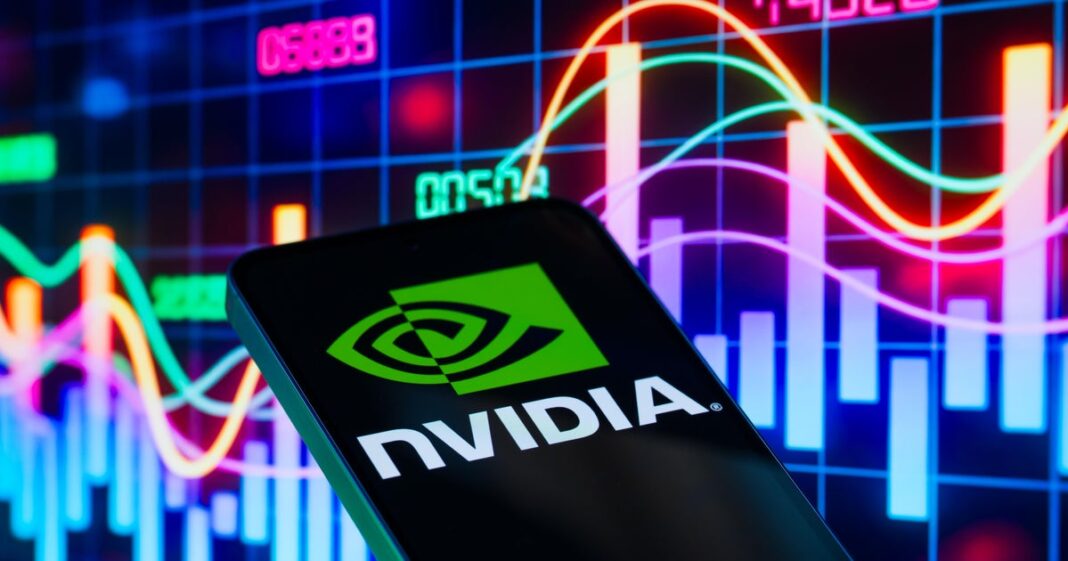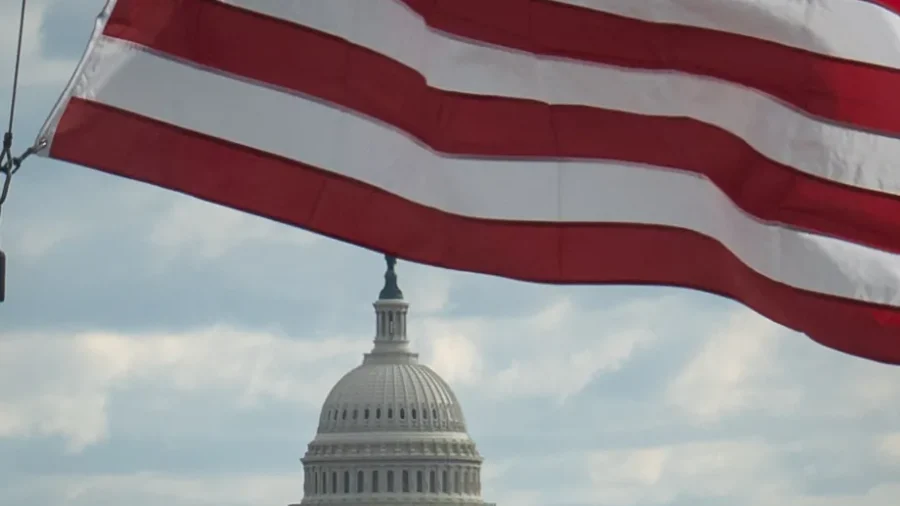Nvidia’s third-quarter financial results on Wednesday surpassed analyst expectations, signaling that demand for its artificial intelligence chips remains robust amid investor concerns about an AI bubble.
The chipmaker reported earnings of $31.9 billion on record revenue of $57 billion for the third quarter. Revenue for the period surged 22% from the previous quarter and 62% from a year ago. Its earnings per share were $1.30. The Santa Clara, Calif., company had been expected to earn $1.26 per share on revenue of $54.9 billion for the quarter, according to analysts polled by FactSet.
“Blackwell sales are off the charts, and cloud GPUs are sold out,” Nvidia CEO Jensen Huang said in a statement on Wednesday, referring to the company’s proprietary superchips that power large language models.
“Compute demand keeps accelerating and compounding across training and inference — each growing exponentially. We’ve entered the virtuous cycle of AI. The AI ecosystem is scaling fast — with more new foundation model makers, more AI startups, across more industries, and in more countries. AI is going everywhere, doing everything, all at once,” Huang added.
Nvidia forecast revenue of $65 billion for the fourth quarter. The company’s shares, which have jumped 39% this year, rose nearly 4% in after-hours trading to $193.80.
“This is a huge print and guidance from Nvidia that should reignite the bullish tech trade into year-end,” Wedbush Securities analyst Dan Ives said in a note to investors, adding that he thinks “fears of an AI Bubble are way overstated.
In October, the chipmaker became the first publicly listed company worth $5 trillion, with its shares buoyed by Wall Street expectations of surging demand.
Rational exuberance?
In recent weeks, some investors have expressed caution about the hype surrounding AI and whether the soaring market value of companies linked to the technology is warranted. Despite the promise of AI, most companies that are implementing AI have yet to see a measurable increase in productivity or profits, according to Wall Street analysts.
“Nvidia earnings are such an important event both because of the weighting that the stock has in the major equity indices and because it is ground zero for the entire Artificial Intelligence build out,” Chris Zaccarelli, chief investment officer for Northlight Asset Management, said in an email.
The rapid construction of data centers across the U.S. has boosted demand for Nvidia’s chips. Data center investment, which includes spending on AI research and development, has become the largest contributor to U.S. growth this year, according to S&P Global.
The S&P 500’s 15% gain this year has been driven largely by big tech companies with AI investments. The combined market capitalization of the so-called “Magnificent 7” — Google-owner Alphabet, Amazon, Apple, Meta, Microsoft, Nvidia and Tesla — accounts for 37% of the index’s total value, according to Morningstar.
“Market psychology has been negative this month as investors worried that the artificial intelligence infrastructure build out was a bubble, and in a few years we may look back at this time and point to signs that it was, Zaccarelli said. “But in the meantime, the largest technology companies in the world are extremely profitable, and they are reinvesting billions of dollars into data centers, servers and chips, and the spending is real.”
China hurdle
Nvidia reported robust demand for its chips despite being blocked from the vital Chinese market because of U.S. export restrictions as the two nations compete on AI.
In an earnings call with analysts, Nvidia Chief Financial Officer Collete Kress on Wednesday said the company is “disappointed” it can’t ship products to China.
“To establish a sustainable leadership and position in AI computing, America must win the support of every developer and be the platform of choice for every commercial business, including those in China,” she said, adding that Nvidia will continue to push for access to the Chinese market.
Wedbush’s Ives said he expects the export controls to be removed in 2026 as the U.S. and China continue trade negotiations.


